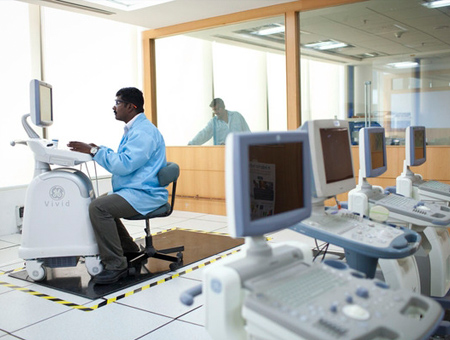 Healthcare software engineers are creative thinkers who develop software applications or systems that support healthcare delivery or pave the way toward breakthroughs in medical treatments. They may work websites that connect researchers with clinical trial data across the globe, mobile applications that foster real-time collaboration between physicians or provide immediate access to patient health records and software to support electronic health records and health record information exchanges.
Healthcare software engineers are creative thinkers who develop software applications or systems that support healthcare delivery or pave the way toward breakthroughs in medical treatments. They may work websites that connect researchers with clinical trial data across the globe, mobile applications that foster real-time collaboration between physicians or provide immediate access to patient health records and software to support electronic health records and health record information exchanges.
Healthcare Software Engineer Job Duties and Typical Work Environment
Similar to other types of software engineers, healthcare software engineers define the problem that the software needs to address, analyze users’ needs and gather requirements, including system specifications and standards. They then document each proposed solution, including flowcharts, diagrams and code samples, to assess feasibility and fit for each solution. Once the best solution is selected, they then design, test and develop software that meets the needs, goals and specifications as they are outlined in the solutions documents.
They often work closely with computer programmers, who write much of the code and sometimes take on a project management role for large software and systems implementations. They are also often responsible for managing software updates and documenting all aspects of applications and systems they develop.
Most healthcare software engineers work for computer systems design or related services firms or for software publishers that specialize in the healthcare industry. Most work in an office setting, although some may have the option to telecommute. Most software engineers work full time and a significant percentage work more than 40 hours per week on a regular basis.
Salary and Growth Potential
According to the U.S. Bureau of Labor Statistics Occupational Outlook Handbook, jobs for software engineers are projected to grow 30 percent by 2020, much faster than the average for all occupations. As of May 2010, the median annual salary was $87,790 and the top 10 percent earned more than $143,000.
Required Education, Training and Skills
Healthcare software engineers usually need at least a bachelor’s degree in computer science, software engineering or a related field. Some employers and some positions may prefer or require a master’s degree. Many of these degree programs are available either on traditional college campuses or through online degree programs.
Computer science degrees are the most common for software engineers as they instruct students across a broad range of topics. Students who want to become software engineers are advised to choose coursework related to software design and development to better prepare themselves for work in this field. Healthcare software engineers also need knowledge and skills related to the healthcare industry.
In addition to formal education, software engineers should also have highly developed analytical skills in order to assess users’ needs and then design software to meet those needs. Technical skills are also a must as engineers need to be able to understand computer systems and languages in order to develop and implement software.
They should also be creative thinkers, capable of envisioning new approaches and solutions that may not exist yet, and they should have excellent communication skills in order to be able to give clear instructions to others working on a project.








